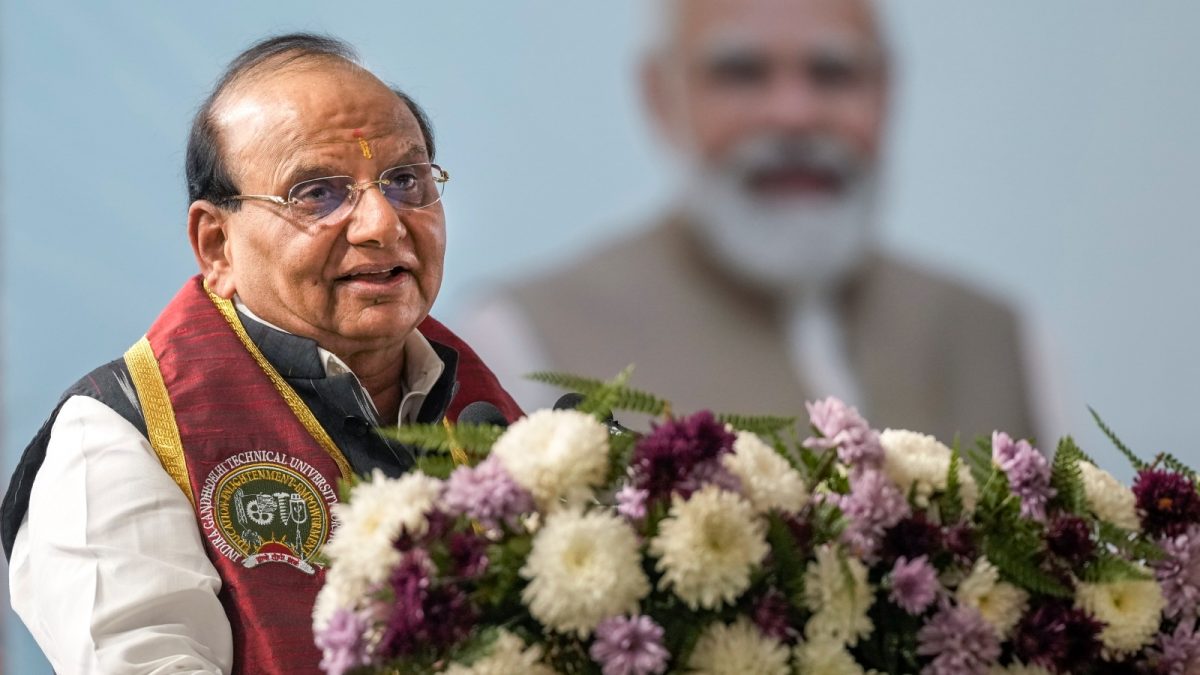Last Updated:
The notification, issued on August 13, designated all Delhi police stations as official sites for police to depose before courts via video conferencing

Delhi Lt. Governor Vinai Kumar Saxena. (PTI file photo)
The Delhi High Court on Wednesday raised concerns over a notification by Lieutenant Governor Vinai Kumar Saxena allowing police officials to depose via video conferencing from police stations, stating it “prima facie compromises the concept of a fair trial.”
The notification, issued on August 13, designated all police stations in Delhi as official venues from where police personnel can present evidence and depose before courts through video conferencing.
Recommended Stories
While the court did not question the LG’s power to designate places for depositions, it questioned why police stations, premises controlled by the investigating agency, were chosen as these designated places, Live Law reported.
A division bench led by Chief Justice DK Upadhyaya and Justice Tushar Rao Gedela remarked, “Right to fair trial emanates from Article 21. What is a fair trial? Whether this right of fair trial of an accused is not being compromised by permitting the prosecution witnesses making their depositions from their own places?”
“We can understand there is some some difficulty in formal witnesses, IOs etc… We are not challenging your powers to designate a place but why police stations?” the court asked.
The court was hearing a public interest litigation (PIL) filed by lawyer Raj Gaurav, who argued that the notification undermines the fairness and neutrality of criminal trials. He pointed out that allowing police witnesses to testify from police stations gives them an unfair advantage and threatens the accused’s right to a transparent trial.
Gaurav said police officers might even avoid tough cross-examinations by switching off video calls, putting the accused at a disadvantage. He also noted that while police officers depose from police stations, other witnesses appear in court, creating an unequal situation that violates Article 14 (right to equality).
Chief Justice Upadhyaya stressed the importance of maintaining neutrality during depositions, saying, “Cross-examination and deposition is part of trial. It is not the part of prosecution or investigating process.”
The Court further noted that designating police stations as places of deposition—premises controlled by the State, which is also the prosecutor and investigating agency—raises prima facie concerns about fairness.
Additional Solicitor General Chetan Sharma, representing the government, accepted the court’s concerns and promised to respond in the next hearing.
The court has scheduled the next hearing for December 10, when a similar PIL on the matter will also be heard.
About the Author
The News Desk is a team of passionate editors and writers who break and analyse the most important events unfolding in India and abroad. From live updates to exclusive reports to in-depth explainers, the Desk d…Read More
The News Desk is a team of passionate editors and writers who break and analyse the most important events unfolding in India and abroad. From live updates to exclusive reports to in-depth explainers, the Desk d… Read More
September 10, 2025, 20:57 IST
Loading comments…
Read More




